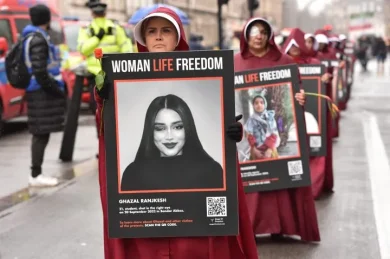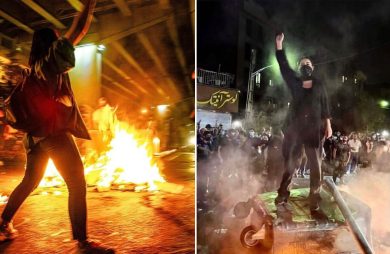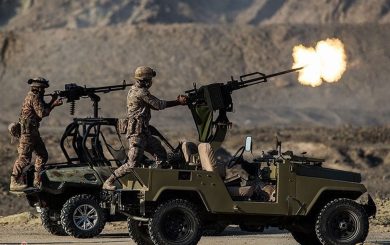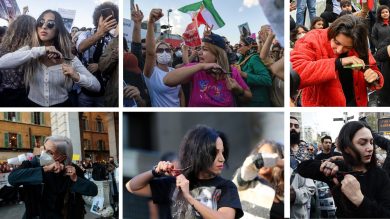In Iran, resistance often leads to prison. For many courageous Iranian women, standing up against injustice means enduring the brutal confines of state-run facilities like Evin Prison or the notorious Qarchak Prison. These women, jailed for peaceful activism, journalism, or simply for choosing not to wear the compulsory hijab, have emerged from imprisonment with powerful voices and stories that challenge one of the Middle East’s most repressive regimes.
This article highlights the experiences of Iranian women who have survived imprisonment under the control of the Islamic Revolutionary Guard Corps (IRGC) and now live in exile. From torture and psychological abuse to forced confessions and isolation, their survival is a testimony to resilience—and their voices have become vital instruments in the global struggle for human rights and freedom in Iran.
1. Evin Prison: Symbol of Political Repression
A. The History of Evin
Located in northern Tehran, Evin Prison has long been synonymous with political repression. Since the 1980s, it has housed thousands of prisoners of conscience—journalists, students, feminists, artists, lawyers, and ordinary citizens caught in the dragnet of authoritarian control.
B. Women in Evin
While the IRGC targets a wide range of dissenters, women prisoners face gender-specific violence, including:
• Solitary confinement in dark, windowless cells for weeks or months.
• Physical and sexual abuse during interrogations.
• Denial of access to medical care, lawyers, or even their children.
• Psychological pressure, including threats of harm to family members.
2. The Voices from Within: Testimonies of Survival
A. Narges Mohammadi
Human rights defender and Nobel Peace Prize laureate, Narges Mohammadi, spent years behind bars for her advocacy against the death penalty and defense of women’s rights. In Evin, she endured:
• Intense interrogations by IRGC intelligence agents.
• Extended periods in solitary confinement.
• Being denied medical treatment for chronic health conditions.
Despite this, she authored letters and articles smuggled out of prison, describing the cruel conditions faced by female inmates and demanding international accountability.
“They can lock us up, but they cannot silence our words,” she wrote in one letter from Evin.
B. Sepideh Gholian
A journalist and labor rights activist, Sepideh Gholian has been repeatedly imprisoned by the IRGC. She was tortured into giving a televised confession and later retracted it upon release.
From exile, she continues to expose the IRGC’s abuses. After her release, she defiantly chanted anti-regime slogans in front of Evin, leading to immediate re-arrest.
“I will not be silent. Every day in prison makes me stronger,” Sepideh declared in a social media post from exile.
C. Atena Daemi
A children’s rights activist, Atena Daemi was sentenced to years in prison for peaceful activism. She endured hunger strikes to protest the abuse of inmates and spoke out about the degrading treatment of women, including physical beatings by guards.
Today, she lives in exile, still advocating for the rights of political prisoners and exposing the regime’s brutality through writing and activism.
3. Qarchak Prison: Hell for Women
While Evin is infamous, Qarchak Prison is often described by former inmates as “worse than hell.”
A. Inhumane Conditions
• Cells designed for 2-3 people hold 10-15 women.
• Political prisoners are mixed with violent offenders to increase fear and risk.
• Inadequate food, lack of hygiene, and constant surveillance intensify suffering.
Women report being denied sanitary supplies, threatened with rape, and subjected to humiliating searches.
B. Shaparak Shajarizadeh
Arrested for removing her hijab in public, Shaparak Shajarizadeh became a symbol of the anti-hijab movement. She described being tortured in Qarchak, subjected to beatings, and denied contact with her son.
Now in exile, she campaigns for the rights of women in Iran, using her voice to call for international action against the IRGC.
4. From Prison to Exile: Continuing the Fight Abroad
For many women, exile is not the end of their activism—it is the beginning of a new chapter. Outside Iran, they are able to speak freely, raise awareness, and organize global campaigns.
A. Role in Global Advocacy
• They collaborate with NGOs and human rights organizations.
• Provide firsthand testimonies to the UN, European Parliament, and international courts.
• Launch social media campaigns, petitions, and public events to amplify the voices of those still imprisoned.
B. Living in Fear Even Abroad
Even in exile, these women face threats. The IRGC has targeted activists abroad for harassment, surveillance, and even attempted kidnapping or assassination.
5. The Power of Storytelling: Why These Voices Matter
The voices of women who survived the IRGC’s prisons are powerful tools for:
• Exposing human rights violations and demanding accountability.
• Inspiring the next generation of Iranian women and global feminists.
• Mobilizing international pressure on the Iranian regime.
Their stories challenge the regime’s narrative and bring global attention to the silent suffering of thousands still incarcerated.
6. How the World Can Support
A. Designate the IRGC as a Terrorist Organization
The U.S. has already done so; other governments must follow to restrict the IRGC’s global influence and financing.
B. Demand the Release of Political Prisoners
Governments and international bodies must consistently pressure the Iranian regime to free those imprisoned for peaceful activism.
C. Provide Asylum and Protection
Women forced into exile must be offered swift and safe asylum, legal support, and security from transnational threats.
D. Support Campaigns and NGOs
Donate to or amplify the work of groups defending Iranian women’s rights and political prisoners, such as:
• Center for Human Rights in Iran
• United for Iran
• Iran Human Rights
Conclusion: From Silence to Strength
The women who survived Iran’s prisons and now live in exile are not victims. They are leaders, storytellers, and symbols of hope. Through them, the world hears the truth of what happens behind prison walls. Through them, the demand for justice grows louder.
Join Our Newsletter!
Stay informed with the latest updates, news, and ways to take action in the fight for justice and global security. Sign up now to get updates delivered straight to your inbox!





